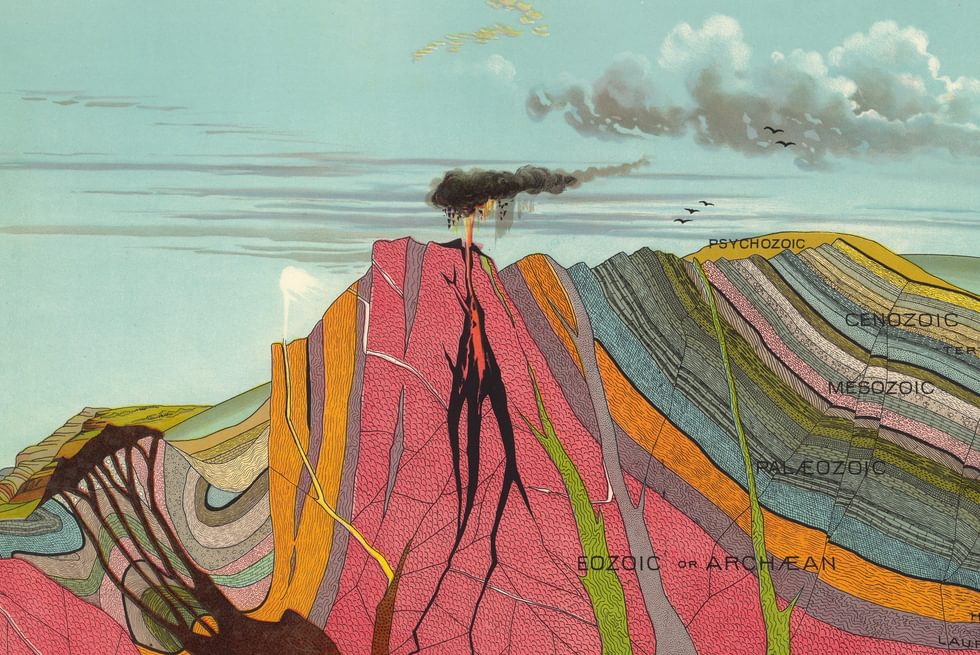
Geology has become a principal field and framework in the social sciences and humanities in the past decade to understand anthropogenic environmental crises. This series departs from the premise that grasping our planetary predicament might only be possible by reconsidering Geos and Anthropos together, and thus rethinking what the geological and the human entail simultanously. In response to recent critical takes on geology as an extractive discipline that sustains capitalist and settler-colonial projects, we aim to unsettle the traditional disciplinary, conceptual, and material boundaries of geology and the geological. Against universalizing notions of the geological, entries in this series challenge assumptions about the kinds of materials that the geological is assumed to entail, the boundaries between living and inert, the spaces that geological is supposed to inhabit, the forms it might take, and the futures it may shape. Here we reconsider geology not only as yet another object of anthropological knowledge but also as also an analytical device; a moral, political, or material condition of the present; and a transformative force. Troubling the categories upon which “white geology” hinges, a geological anthropology emerges as an imaginative approach that engages with humans’ and non-humans’ shared existence on a turbulent and dynamic planet.
Posts in This Series

Introduction: Geological Anthropology
Geology has become a principal field and framework in the social sciences and humanities in the past decade to understand anthropogenic environmental crises. Th... More

The Inorganic Slot
It has now been a few years since anthropologists and their interlocutors in science and technology studies, literature, and elsewhere have expanded their inqui... More

The Depths of Geological Fieldwork
Throughout the summer of 1976, British geologists working in Ecuador on a geological mapping and mineral exploration project were finishing key parts of their r... More

Domesticating Metal
Tin is far from a sexy resource. It is neither slick like oil nor dubiously “green” like lithium, and it does not conjure images of either blood-soaked resource... More

Rocks Have History
“In the desert you always walk with the ancestors,” doña Carmen told us around a wood fire on a cold November night in the Salar de Atacama, the Atacama salt fl... More

The Plume: Movement and Mixture in Subterranean Water Worlds
Asking questions about life in science, Kathryn Yusoff (2018) turns to geology and diagnoses it as a field built on the partition between live/inert, human/inhu... More

The Dust Kaleidoscope
In April of 2001, years of drought, an unusually warm winter, and early spring Siberian jet winds coalesced in a massive dust storm over China’s interior. A dec... More

Erosion
Waves breaking, rocks pounded into particles, sands suspended, soils liquified. Is erosion ever a good thing? This is the crude but unassuming question that g... More

Palimpsest Landscapes
When palimpsests are invoked, it is typically for the way composite surfaces index intertextuality. In their succession, layers of writing superimposed over par... More

Making Mountains
The stunning jagged out-crops of the ophiolite mountains crowning the edges of the Arabian Sea are a result, geologists have explained, of a 40-million- to 73-m... More

Regions, in Theory
Nine years ago, one could be forgiven for imagining all of western Canada as sitting on the precipice of an extractive revolution. “Stretching for some 2,500 ... More

Continental Collision
“Eastern Turkey has for thousands of years been a region of convergence for European and Asian peoples, a region where eastern and western cultures come togethe... More

Protest Geologies
Aminata Touré and Pape Kamara are immigrants from West Africa and residents of adjacent apartment buildings in a suburb of Paris. They were strangers until a go... More

Geological Humanism
Antihumanism has defined much of anthropology and critical theory since the 1960s, taking such forms as a rejection of biological universals and any notion of a... More